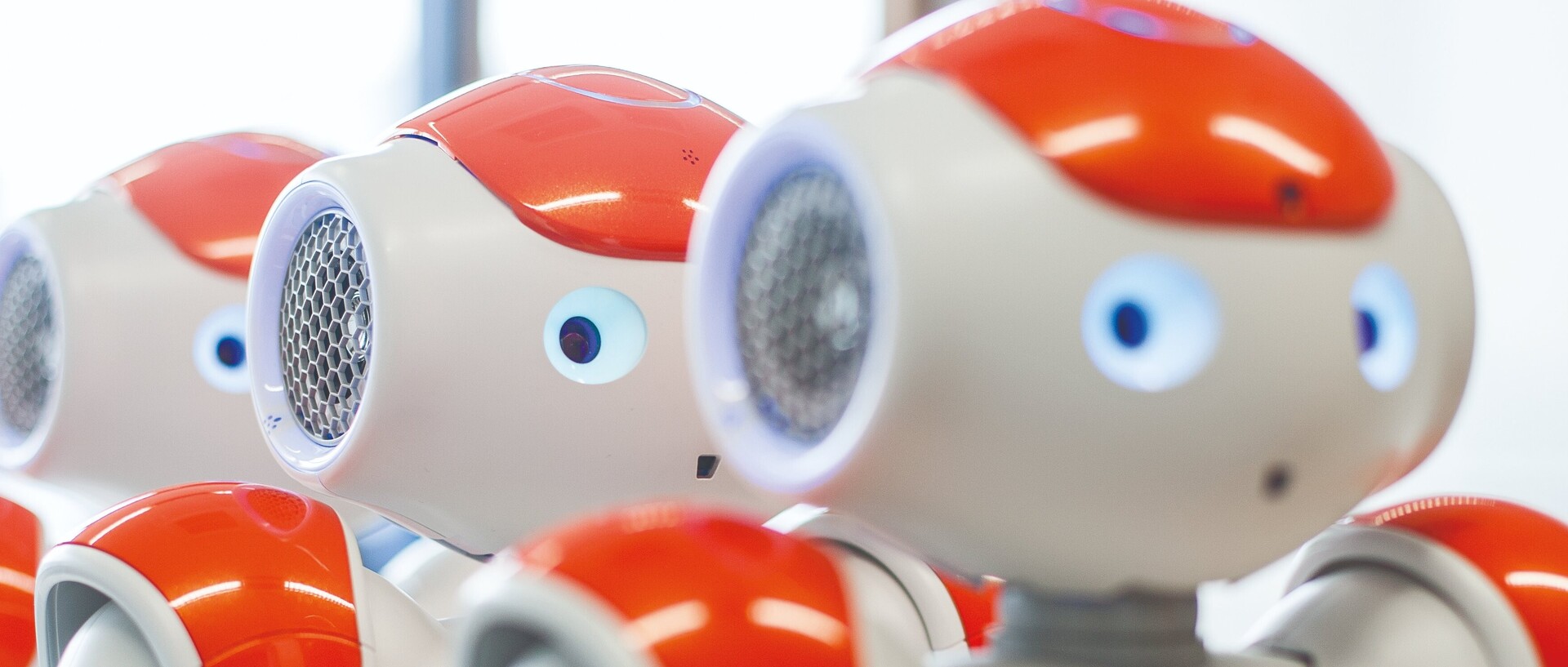The Future is Digital
The digital transformation of our world is taking place – with or without us. The numerous opportunities for the economy and society, for our professional and private life must be explored and shaped from different perspectives. Artificial Intelligence, big data, Internet of things or smart factories are only a few keywords that keep getting more and more important in this context and that need to be examined for opportunities, risks and potential. By carrying out interdisciplinary research projects, the University of Mannheim helps prepare the leaders of the future for this new world.
With your help, the University of Mannheim Foundation can guide and support the university as its making its way into the digital age. Therefore, we have listed some important projects in the field of digitalization below. Feel free to contact us, if you would like to get involved in one of our projects – we’re happy to advise you.
Mannheim Center for Data Science: Big data for science
Large volumes of data (Big Data) and the processing of this flood of information pose completely new challenges for companies, the economy and society, but also for individual users. Making use of these mountains of data through data analysis and artificial Intelligence (AI) is particularly important for the examination of economic and sociological issues. For example, it can help predict customer behavior or better understand social developments.
Therefore, the interdisciplinary Mannheim Center for Data Science (MCDS) was established at the University of Mannheim. Activities in the field of data science are combined, in order to expand research on dealing with structured and unstructured data. The Mannheim Master in Data Science (MMDS) program trains students to be expert data scientists who are urgently needed in companies.4.5 million euros will be needed for the next ten years to successfully expand the MCDS.
This is to co-finance another chair of “Data Science” and personnel for the support and expansion of the center’s activities. It is possible to help with a minimum contribution of 50,000 euros. Invest in the future with us – we are happy to advise you!Data literacy skills for middle-sized companies
The University of Mannheim and eight other higher education institutions in Baden-Württemberg are currently working together to develop new training courses and qualification programs on collecting, evaluating and using large amounts of data generated in companies. The new continuing education programs are specifically designed for medium-sized companies since data literacy skills and data science are becoming more and more important for them.
At least for the next four years, 500,000 euros will be needed to employ additional staff that will advance new projects and continuing education programs. You can help with as little as 50,000 euros. The University of Mannheim Foundation supports the promotion of the programs and is happy to receive further help.
E-Learning
International competitiveness starts with the equipment of the rooms because in order to apply learning and teaching methods, students and teachers need adequate infrastructure.
Students benefit greatly, for example, in their day-to-day studies and when preparing for exams, if they can watch lectures online from home and revise them. In order to create and improve the necessary conditions it is essential that lecture halls be provided with video technologies. The university also needs an e-learning center and additional personnel to coordinate all the e-learning activities.
In order to equip a lecture hall with modern recording technology, we will need 25,000 euros. The cost of hiring an employee will be 500,000 euros for the next four years. Join the foundation to support better e-learning conditions.



